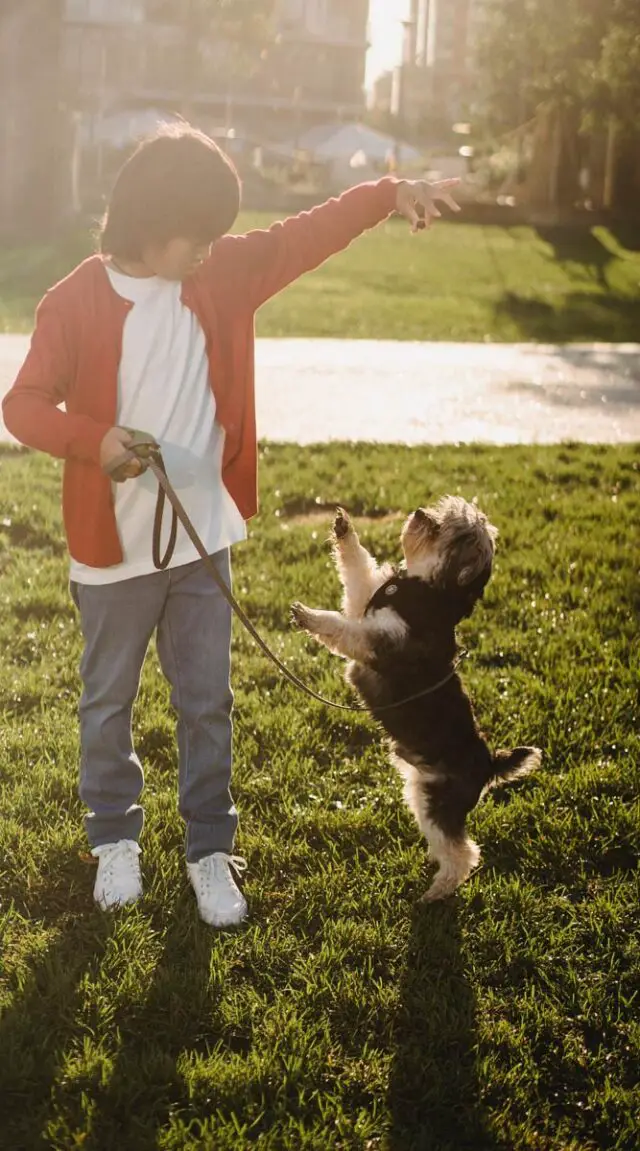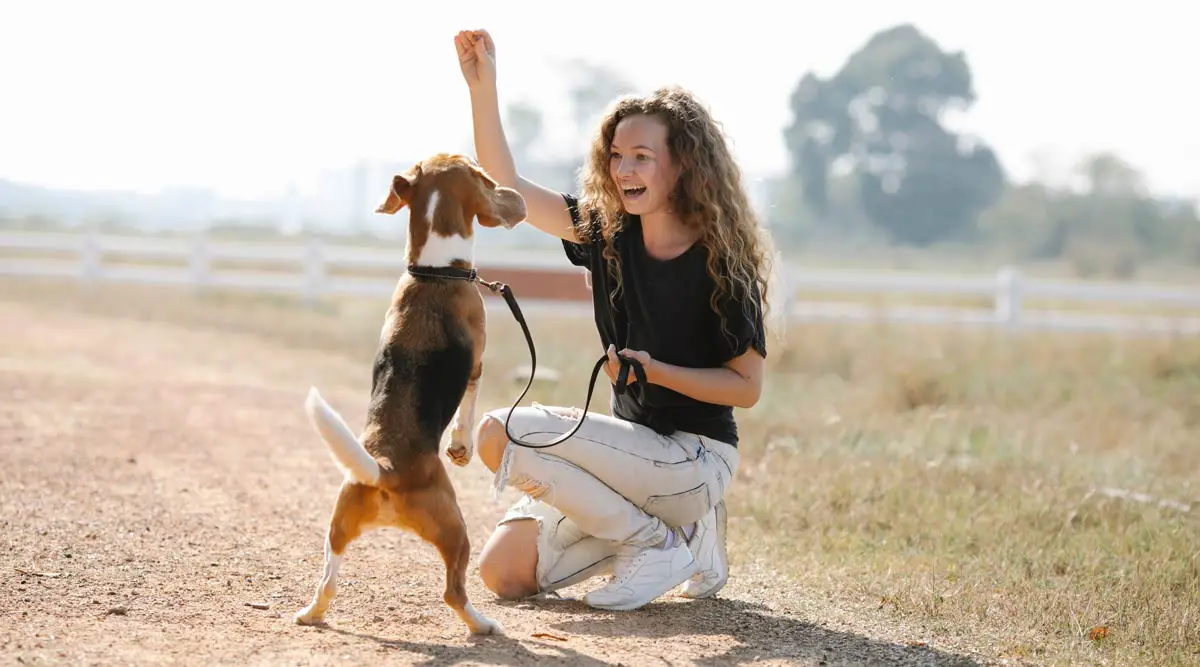Socialization is an essential aspect of raising a well-behaved and balanced dog.
It involves exposing your dog or puppy to a variety of people, animals, environments, and experiences in a positive and controlled manner.
Proper socialization can help prevent behavior problems and ensure that your dog grows up to be confident and comfortable in different situations.
In this article, we will discuss why socialization is important and provide detailed tips on how to socialize your puppies, adolescent dogs, and adult dogs.

1. Why socialization is important for your dogs or puppies?
Socialization is essential for the overall well-being and behavior development of dogs and puppies. It helps them become confident, adaptable & socially skilled and promotes positive interactions with people, animals, and the environment.
- Behavior Development:
Socialization helps in shaping a dog’s behavior and temperament. Proper socialization during the critical periods of puppyhood and adolescence can prevent behavior issues such as fear, aggression, and reactivity, and promote positive social behaviors. - Confidence Building:
Exposure to different people, animals, and environments helps dogs and puppies develop confidence and resilience.
It allows them to learn how to cope with new and unfamiliar situations without feeling overwhelmed or anxious. - Adaptability:
Dogs that are well-socialized are more adaptable to different environments, sounds, sights, and smells.
This makes them more comfortable and confident in various situations and reduces anxiety and stress. - Communication Skills:
Socialization allows dogs and puppies to learn appropriate social cues and develop good dog-to-dog communication skills.
It helps them understand how to interact with other dogs and people in a polite and respectful manner. - Bonding:
Socialization provides opportunities for dogs and puppies to bond with their owners or caregivers. Positive experiences during socialization create a strong foundation of trust and rapport between dogs and their human companions. - Prevention of Behavior Problems:
Lack of socialization can lead to behavior problems such as fear, aggression, and anxiety in dogs.
Proper socialization can prevent the development of such issues and promote a well-rounded, emotionally stable, and mentally healthy dog.
2. How to socialize your puppies, adolescent and adult dogs?
2.1 Socializing Your Puppies
Between the ages of 3 and 14 weeks, puppies are in a crucial developmental stage where they are highly susceptible to impressions and more open to novel experiences. Here are some tips for new owners:
- Expose your puppy to various people
(including men, women, children, and people of different ethnicities and appearances).
Encouraging gentle handling and positive interactions with new people, helps them learn to be comfortable around different individuals and promotes positive social interactions. - Introduce your puppy to friendly, vaccinated dogs of different sizes, breeds, and ages in controlled and supervised environments.
This will help them learn appropriate social cues and develop good dog-to-dog communication skills. - Expose your puppy to different environments
(such as parks, streets, car rides, and different types of surfaces (e.g., grass, concrete, sand)) to help them become familiar with different surroundings. - Introduce your puppy to various sights, sounds, and smells
(such as cars, bicycles, vacuum cleaners, doorbells, and other common household noises). Gradually increase the level of difficulty as your puppy becomes more confident and relaxed. - Exercise food bowls: Use mealtime as an opportunity for socialization by incorporating food bowl exercises.
You can hand-feed your puppy or feed them in the presence of other people or animals. This helps your puppy associate positive experiences with food and prevents resource-guarding behavior. - Visit veterinary:
The veterinary clinic is likely to be one of the first unfamiliar places your new puppy will experience upon arriving at your home.
These initial visits to the vet are crucial for their overall health and socialization. Collaborate with your vet to ensure these visits are enjoyable and pleasant for your puppy.
Remember to use positive reinforcement techniques such as treats, praise, and play to reward and encourage your puppy for calm and relaxed behavior during socialization experiences.
2.2 Socializing your adolescent dog
Adolescence is a critical period for dogs as they go through physical and hormonal changes that may affect their behavior. Proper socialization during this stage can help prevent behavior issues such as fear, aggression, and reactivity. Here are some tips for socializing your adolescent dog:
- Continue to expose your adolescent dog to different people, animals, environments, and experiences, but at a level that matches their maturity and comfort level. Gradually increase the level of difficulty to challenge them and build their confidence.
- Continue to reinforce positive behaviors with rewards and praise; set clear boundaries and expectations for your adolescent dog’s behavior in social situations.
- Provide regular opportunities to interact with other well-behaved dogs to continue developing their social skills and manners.
- Continue to expose them to different types of environments, sounds, and sights to help them become more adaptable and confident in different situations.
- Teach your dog to be comfortable alone: It’s important to schedule daily alone time for your dog without people or other pets nearby to prevent separation anxiety. You can use a baby gate or crate to limit your dog’s access to certain areas and prevent them from constantly shadowing you when you’re at home.
- Vary your walking routes: Avoid walking the same route every day with your dog. Instead, try to expose them to a variety of environments, including sidewalks, dirt roads, and different areas. This will provide mental stimulation for your growing dog and keep their experiences varied and engaging.
Incorporate basic obedience training into socialization experiences to reinforce good manners and self-control in your adolescent dog.
2.3 Socializing your adult dog
Socializing an adult dog may require more patience and careful management compared to puppies, as they may have established behaviors and past experiences that can influence their reactions.
Gradual exposure, positive reinforcement, and professional guidance can help your adult dog become more comfortable and confident in various social situations. Some essential tips for you:
- Taking regular walks in areas where your dog can interact with other people and animals.
Visiting a dog park can also be a great way to expose your dog to new experiences and interactions. A strong and durable leash is necessary for safe walks and outings with your dog. - Arrange playdates with friends and their dogs at your home or a designated play area.
- Enrolling your dog in a dog daycare program once or twice a week to provide them with regular opportunities to socialize with other dogs in a supervised environment.
And always prioritize your dog’s safety and comfort during socialization experiences, and adjust the approach to their individual needs and temperament.
If you’re finding it challenging to socialize your adult dog, you may want to consider seeking the assistance of a certified dog trainer or behaviorist who can collaborate with you and your dog to create a customized socialization plan.
Happy Training!!!











